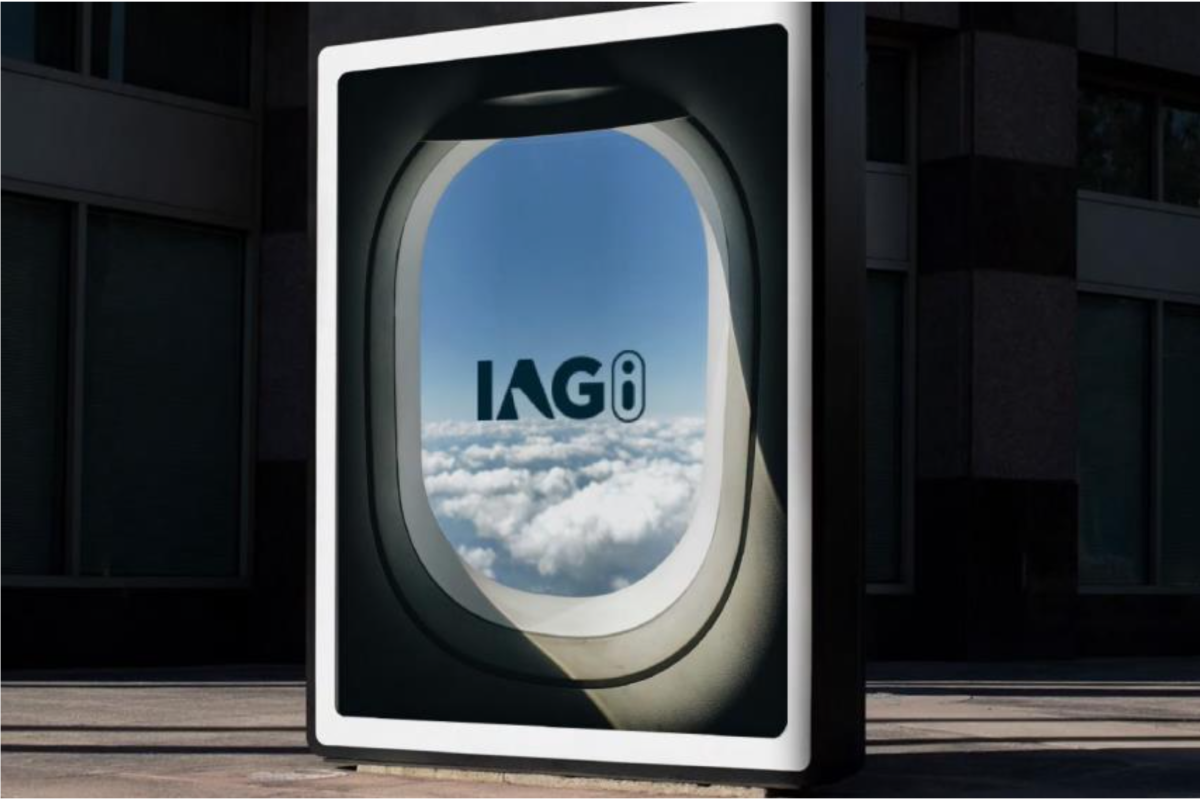Leading Companies in Tours and Activities Emerge But There Is Still a Vast Sprawl of Competitors Below

Skift Take
While the emergence of TripAdvisor, GetYourGuide and, to a lesser extent, Airbnb, as well as some fairly large funding rounds, suggest that the pecking order in the tours-and-activities sector is finally coming into focus, there still is a vast sprawl of companies competing for relevance with myriad business models.
Some focus solely on consumer bookings, others offer tours and activities tech, and still more offer a mix of both.
TripAdvisor-owned Viator continues to stay ahead of Expedia as the largest direct-to-consumer marketplace for tours and activities.
As of this autumn, Viator is hoping that travel agencies will start using its new booking tool to find tours and activities to sell to consumers.
Dermot Halpin, president of TripAdvisor Attractions and Vacation Rentals, said: “We’re making foundational changes to our business, which support our very steep growth trajectory and extend our position in this space."
Halpin added: "We’re seeing significant progress across the board – we’ve grown bookable supply by 25 percent this year, our customer satisfaction levels are at record highs, and our strong bookings and conversion growth continues. The improvements in this business were integral to the 31 percent, year-on-year growth, TripAdvisor saw in our non-hotel results last quarter."
The largest activities marketplace outside of a publicly traded online travel company is GetYourGuide. It notched a milestone this summer: Nearly half of the 10 million tickets it has ever sold were purchased in 2017 alone, the company said.
"We’re on track for our best year ever by far, thanks partly to accelerating growth in mobile," said co-founder and COO Tao Tao. Its recent partnerships with KLM and EasyJet, in which it helps the airlines sell tours as add-ons, are "already surpassing initial expectations," he added.
In the next year, the Berlin-based startup, which has raised more than $95 million in funding, has plans for international expansion. It also aims to expand the number of partners using its business-to-business services.
On the business-to-business side of the sector, the fastest growing company that hasn’t revealed any venture capital funding is FareHarbor, a family-owned, U.S.-based provider of enterprise software for tour operators that's made some recent acquisitions. It said Tuesday that it is now doing $50 million in revenue per year, double its pace of a year ago.
This week it launched a new business-to-business tool, FareHarbor Telescope, a predictive pricing platform powered by artificial intelligence to help operators select optimal rates for activities.
The most interesting venture capital play in the sector this year remains the $30 million round for Klook, led by Sequoia Capital China. The Hong Kong-based startup is primarily a consumer-facing marketplace for activities that says it processed 5 million transactions in 2016. But it also distributes activities to partners like Cathay Pacific and travel agencies for resale primarily in mainland China, Hong Kong, Taiwan, South Korea, and other parts of Southeast Asia.
The most dramatic deal of the year was when two companies with both consumer marketplaces and enterprise software businesses -- Peek and Zozi -- merged by Peek acquiring its competitor. Peek's CEO Ruzwana Bashir said the combined platform has "now reached hundreds of millions of dollars of bookings, and this summer Peek tripled its revenue from the same time last year." The company recently introduced abandoned shopping cart retargeting tools and in-booking-flow upsell technology.
Can Airbnb Deliver?
Last winter, Airbnb received a lot of publicity for its plan to curate and promote local experiences to its users. We’ve reported previously on what hosts think of the newest product, and about its launch announcement for New York City in October, which was one of its biggest expansions yet.
Airbnb is the last sizable player to take a curated approach to tours and activities. While other companies make gestures at “hand-picking” product, Airbnb does it consistently. As of now, the company appears to want to amplify its brand positioning as a company that brings to the surface independent and small operators providing non-generic tours.
In Airbnb’s Paris listings, you will not find tickets to visit the Eiffel Tower, but you will find a professional comedian’s unofficial tour of the Louvre. You will also find it completely focused on the peer-to-peer consumer sector with no apparent interest yet in providing software for tour operators or other business-to-business efforts.
Expedia already is a force in tours and activities — and its imprint is likely to become more significant. At the Skift Global Forum in New York City last month, Expedia CEO Mark Okerstrom said tours and activities might move higher on the company's list to top priorities.
A Vast Sprawl
While these names suggest that the tours-and-activities market is becoming more orderly, there is still a vast sprawl of companies whose business models and target customers rub elbows with each other.
This week, Withlocals, a Netherlands-based marketplace for personalized travel experiences, received $4.1 million, or €3.5 million, in Series A investment. Inkef Capital led the round.
The company said it offered a consumer marketplace with 1,200 fully-customizable, 100% private tours and activities led by 900 local hosts in 24 international cities. In 2018, Withlocals will expand to 40 more cities.
Withlocals said it curates only fully private tours. This is not unlike Vayable, which has been around for years but has stayed small.
Others notable players include Bokun, Palisis, Redeam, Regiondo, Rezdy, Rezgo, Tiqets, TourRadar, TrekkSoft, Trip.me, and Veltra>.
In that context, many companies are vying to be acquired by larger players. The consumer-facing companies are eager to have the Expedia’s and Priceline’s and Ctrip’s of this world partner with them and ultimately buy them. The enterprise software companies have their eyes on the larger distribution companies.
Sitting somewhat in-between is Milan-based activities technology company Musement.
Co-founder and chief executive Alessandro Petazzi said Musement never had the narrow goal of only being a consumer supermarket for tours and activities -- though it is best known for doing that. It lists some 25,000 activities and local events.
Musement also aimed to add services such as point-of-sale tools for museums, activity venues, and tour operators; help airlines upsell their customers on activities; and have pop-up stands near major attractions to sell tickets in-person.
Its latest effort to make itself stand out from other companies is to attempt to provide travel advice and recommendations to consumers. To do this, it has acquired Amsterdam-based Triposo, a startup that says it has found an automated way to curate travel recommendations for relevant things to see and do. For example, Triposo’s technology might recommend a visit to a children's museum to parents traveling with their kids in a small town in Austria.
The integration means Musement will mix Triposo’s travel recommendations for relevant things to see and do with its bookable activities. The overlapping content will appear on Triposo's and Musement’s websites and mobile apps and via application programming interfaces, which connect to distribution partners, like airlines and online travel agencies.
The acquisition is a $7 million stock swap where the investors, including InterWest Partners, Chris Sacca, Lars Rasmussen, Crunch Fund, and others, received Musement shares in return for Triposo stock. Musement has raised $18 million since its founding in 2013.
Recommendations as an Upsell Tool
Founded in 2011, Triposo was founded by ex-Googlers founded looking to create mobile travel guides using an algorithmic approach.
Since then, the company claims its mobile apps with travel guides have been downloaded more than 10 million times. But the team was unable to find a cost-effective way to monetize the audience.
Fast forward to September 2016. Nishank Gopal took over as Triposo CEO, and the company shifted to focusing on building a business-to-business product, namely, a sophisticated machine-learning and algorithmic platform for content.
Triposo's tool parses terabytes of textual travel content online to enable partners to grasp the core characteristics of a destination or a point of interest. It claims to enable online travel agencies, metasearch companies, and other players to combine that data with customer profile data to provide relevant recommendations.
Regarding its primary, consumer-facing business, Musement faces a problem that other small travel consumer marketplaces also face: Customer acquisition costs have gotten too high because of the market dominance of conglomerates like Priceline Group and gatekeepers like Facebook.
Petazzi said that he understands how people can be skeptical about the business model. He countered that his company's transaction revenue is greater than its marketing costs, and adding API integrations with partners is, at this point, inexpensive.
Petazzi conceded, though, that his 100-employee company Musement is not yet profitable. Until there is more consolidation, that will likely be a similar challenge that many players will have to confront.





